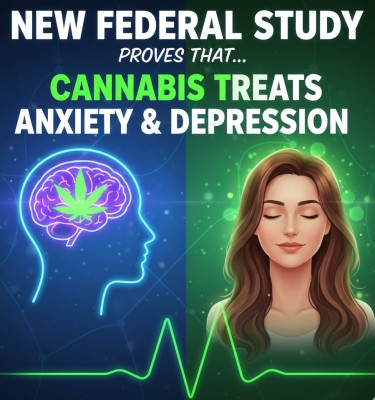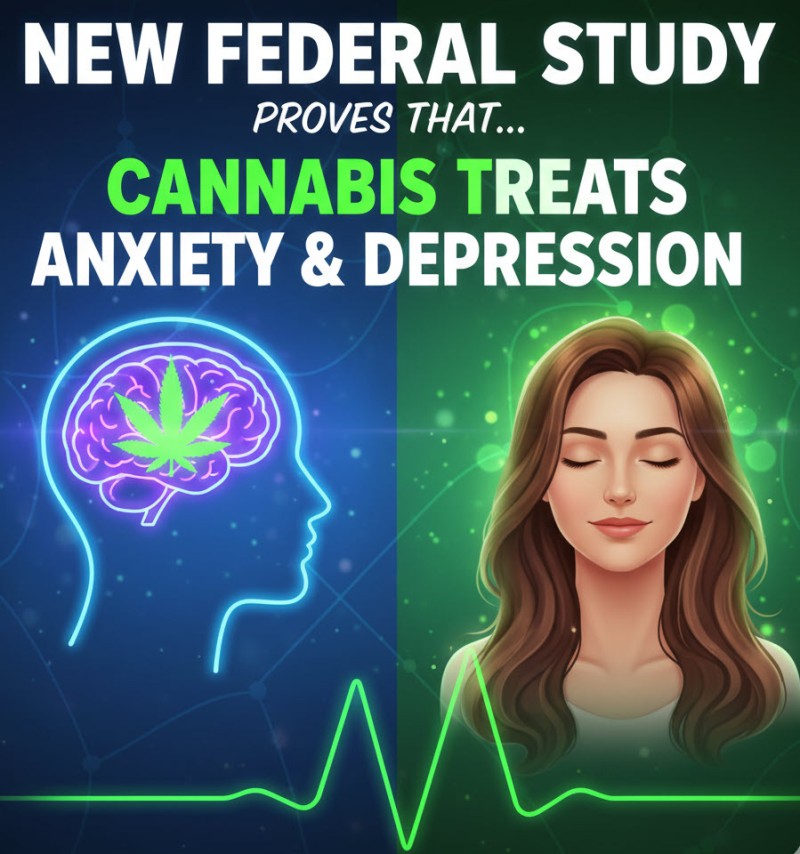
Historically speaking, much of cannabis research that has been funded by the US federal government has yielded results that leaned towards finding negative outcomes, instead of health benefits of weed.
For the past few decades, grants that have been funneled through the National Institute on Drug Abuse (NIDA) and other government agencies were rigged to look for the potential of addiction, the risks, and other harmful side effects of marijuana. The bias didn’t necessarily mean that they didn’t find any benefits in the study, but it often meant that the research questions were skewed and framed in such a way that the data wouldn’t capture the positive.
But times have changed: due to the shift in federal research priorities, the fact that the federal government is willingly investigating marijuana’s health effects with a more balanced approach is a true sign of the changing times. It’s also much more critical to have federally-backed data for research that proves the benefits of marijuana. It gives policymakers, as well as the medical community, more credibility to trust the evidence.
More importantly, there are clear political implications. When federally funded research shows that cannabis can have positive mental health benefits, it serves as fuel for legalization momentum and can help push for the rescheduling of marijuana later on through the Controlled Substances Act. Unfortunately, cannabis is still considered a Schedule 1 substance which, in other words, says that it has no accepted medical use.
Now, one of the latest federally-funded cannabis studies to come out speaks of positive results when it comes to the plant’s uses for anxiety and depression.
The study, which was discussed in Marijuana Moment, was conducted by researchers from the Johns Hopkins University School of Medicine, the Johns Hopkins Bloomberg School of Public Health, the Sidney Kimmel Comprehensive Cancer Center, and the Center for Alcohol Policy Research in Melbourne, Australia. It was funded by the NIDA, though for full transparency, a support grant was also provided by the Lambert Center for the Study of Medicinal Cannabis and Hemp at Thomas Jefferson University, and some researchers on the team either worked in medical marijuana or received funding from the industry.
For the study, researchers used an observational approach and followed 33 adults located in Maryland, all of whom were diagnosed with “clinically significant” anxiety or depression for 6 months. They were all examined at baseline, with follow-ups conducted 1, 3, and then 6 months after they began using medical marijuana.
“Significant decreases from baseline in anxiety and depression were observed, with mean scores dropping below clinically significant levels within three months of initiation,” read the study. Further, the subjects also reported a decrease in symptoms of anxiety and depression over the course of 6 months.
The researchers also noted that the effects were dependent on dose, with 10-15 mg of THC orally consumed, or at least 3 puffs of vaped marijuana, yielding the most significant results in reducing anxiety and depression symptoms.
According to the study’s authors, the findings were indeed promising, but “controlled clinical trials are needed to further investigate the efficacy and safety of medicinal cannabis for acute anxiety and depression symptom management.”
Another recent review, whose results were published in June 2025, analyzed the effects of cannabis preparations on patients with anxiety disorders. Australian investigators analyzed 57 studies that assessed the effect of both synthetic and plant-based weed formulations on patients who had generalized anxiety disorder (GAD), post-traumatic stress disorder (PTSD), or social anxiety disorder (SAD).
The researchers found that a majority of the participants in the studies reported a reduction in symptoms of anxiety after using cannabis. “Among studies with a low relative risk of bias studies included in this review, 69 percent reported improvements in anxiety symptoms and quality of life following medicinal cannabis use,” said the researchers. “Among high-quality trials that investigated GAD, there were consistent reductions in anxiety scores reported. Similarly, qualitative findings highlighted improvements in both symptom relief and sleep quality, especially for participants with PTSD,” they said.
Do We Really Need More Research On Cannabis For Anxiety And Depression?
Anxiety and depression are some of the most widespread mental health conditions that plague Americans today. These conditions affect millions of people; just look at the sheer size of the anxiety and depression treatment market: data shows that globally, it was worth $8.5 billion last 2019, though it’s expected to balloon into $13.03 billion by 2027.
Unfortunately, more people are developing anxiety and depression. Yet, these conditions, alongside epilepsy, nausea, and chronic pain, are among the top conditions most frequently studied for the potential marijuana benefits. Since there is such a great need to find more sustainable and effective medications for anxiety and depression, researchers understand the significance of solidifying even more research to back up the claims that weed works.
But do we really need more studies, federally funded or not, on the effects of cannabis on anxiety and depression? Or, does the government already need to do something about rescheduling cannabis so that we can work on improving access to medications?
Conclusion
With all the research we already have, cannabis has shown significant promise in treating anxiety and depression. THC, CBD, and the other compounds in the plant have proven to be effective in regulating our mood.
Despite the evidence we already have, federal restrictions still keep the drug at Schedule 1; this not only prevents even more research but if efforts were focused on rescheduling cannabis instead of conducting more federal studies, it could pave the way for more rigorous clinical studies while providing physicians with more freedom to prescribe it.






